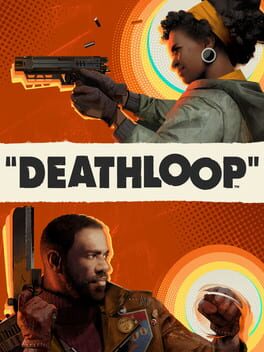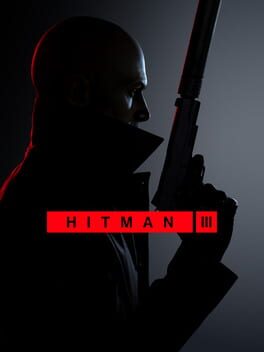Static_Citizen
Disco Elysium is very good. I've rewritten this review six times. It is a very good game. It might have the best protagonist-deuteragonist duo in video games. It's hard to say any discreet story beat is a good example of how very good the game is. My detective will be different from another person's detective, he will have done and said different things. I think that's what makes the game so special. The detective feels personal in a way many modern RPGs could never accomplish. You are his thoughts; you are his motivations. You roleplay as the detective in a literal way. Other RPGs treat the player as a driver; the protagonist's thoughts are unknown, and their direction in the story is guided by reaction. Character building is superficial, and rarely reflects personal growth. The detective is a realistically dynamic character--if you want him to be. That's what makes the game very good.
2021
As of writing, I have broken the Loop once in single player mode and have not played as Julianna.
UPDATE 10/17: A few days after I wrote this log Arkane patched in DLSS support. DLSS runs great, and it improves performance better than AMD FRS does. I've updated the rating to 4.5 stars. I think Deathloop should've shipped with DLSS support, and I'm still encountering some stability issues.
Arkane's press strategy of explaining the game every time they got inches in a publication told me they did not have faith in their creative vision. I guess that was just bad PR since this game is a fuckin laser-guided missile. It progresses in a strong early game-mid game-end game structure of exploration, stockpiling and arming, and plotting out the fastest, deadliest route through Blackreef possible. Colt starts as a bumbling vigilante and turns into the kind of vicious viper hitman that IOI so expertly depicted earlier this year. This is a power fantasy that FPSes have been striving for and missing for years.
I would have ranked this a full 5 stars if not for the PC port's technical issues. The stutter thing was a nonissue; it's a fake problem invented by gamers with too sensitive eyes. The real problems are AMD upscaling and stability of experience. The AMD upscaling available created, for me, a lot of visual problems, from pulsing blurriness to flickering scopes and shadows. I'm kind of baffled that Digital Foundry suggested turning it on for better performance; I would suggest the opposite. It'd probably be better to play at a lower output resolution and maximize whatever settings you want. As for stability, I encountered like a half-dozen crashes from some "authorization" error that was only resolved by turning off the Steam and Geforce overlays. I found several instances of slab abilities triggering visually but not effectively if I was moving or clicking too fast. Navigating menus too quickly (such as mass infusing items or swapping slabs too fast) would sometimes break the UI, requiring a restart. I don't think Deathloop was intended to be played fast on PC, which is a shame. Assassination games are at their best when the goal is to speedrun.
This dev team is largely the same that made Prey, and I loved Mooncrash, so I'm looking forward to a hypothetical challenge mode DLC. Colt's story really only covers the eastern half of Blackreef. There's a whole western half with named locations waiting to be looted for cool guns and Project Horizon lore.
UPDATE 10/17: A few days after I wrote this log Arkane patched in DLSS support. DLSS runs great, and it improves performance better than AMD FRS does. I've updated the rating to 4.5 stars. I think Deathloop should've shipped with DLSS support, and I'm still encountering some stability issues.
Arkane's press strategy of explaining the game every time they got inches in a publication told me they did not have faith in their creative vision. I guess that was just bad PR since this game is a fuckin laser-guided missile. It progresses in a strong early game-mid game-end game structure of exploration, stockpiling and arming, and plotting out the fastest, deadliest route through Blackreef possible. Colt starts as a bumbling vigilante and turns into the kind of vicious viper hitman that IOI so expertly depicted earlier this year. This is a power fantasy that FPSes have been striving for and missing for years.
I would have ranked this a full 5 stars if not for the PC port's technical issues. The stutter thing was a nonissue; it's a fake problem invented by gamers with too sensitive eyes. The real problems are AMD upscaling and stability of experience. The AMD upscaling available created, for me, a lot of visual problems, from pulsing blurriness to flickering scopes and shadows. I'm kind of baffled that Digital Foundry suggested turning it on for better performance; I would suggest the opposite. It'd probably be better to play at a lower output resolution and maximize whatever settings you want. As for stability, I encountered like a half-dozen crashes from some "authorization" error that was only resolved by turning off the Steam and Geforce overlays. I found several instances of slab abilities triggering visually but not effectively if I was moving or clicking too fast. Navigating menus too quickly (such as mass infusing items or swapping slabs too fast) would sometimes break the UI, requiring a restart. I don't think Deathloop was intended to be played fast on PC, which is a shame. Assassination games are at their best when the goal is to speedrun.
This dev team is largely the same that made Prey, and I loved Mooncrash, so I'm looking forward to a hypothetical challenge mode DLC. Colt's story really only covers the eastern half of Blackreef. There's a whole western half with named locations waiting to be looted for cool guns and Project Horizon lore.
2021
A lot of professional reviewers said that this Hitman has a great story, and I scoffed. Nothing about the last two Hitman narratives made sense. They were puzzle games, and they opened with a loose justification for murder. There was nothing wrong with those games, but it set a precedent of mediocre narrative that doesn't intrude on the gameplay. Hitman 3 is a parody of the last two games.
Doc Burford (@docsquiddy on Twitter) says game narrative must encourage the player to play the game to completion. Most games don't do that, and Hitmen 1 & 2 didn't do it but in reverse: the plot was incoherent, but the gameplay was so good it propelled itself. I wanted to get through every location and see every story kill because they were cool interactions. The grand narrative didn't matter to me, partly because it was obtuse and opaque with its acronyms and shadowy unnamed figures, and partly because the interactions within each mission didn't contribute to the progression of that grand narrative.
Hitman 3 forces the player into the plot. Over the first two-thirds of this trilogy you are Agent 47, and he is an apex predator and a casual observer. The story happens to Diana, and the Shadow Client, and the Constant, and all the unnamed goons in Providence. Agent 47 is a blunt weapon wielded by and against these actors. He doesn't know where he stands in this field of intrigue, but he doesn't need to because he's an assassin. All he needs to know is what he needs to do. Kill X, kill Y, then retrieve Z. Easy. In the conclusion, Agent 47 is forced out of his observer role. His life is directly attacked, which forces him to act in his own interest rather than in the interests of an anonymous political force. Halfway through Hitman 3 the rote assignments of 1 & 2 give way to something impactful. Mechanically it was all the same, but the myriad interactions between player, environment and AI were driving my need to finish the game. I needed to know how it would end, I needed to know how the politics would play out now that they were integral to 47's existence. I literally played the game twice--once to try the first mission at launch and again when I was in the mood to play the same Hitman I've been playing, and in that second session I binged the next five levels.
The best level of the six is Mendoza. Not because of its story kills or the wide leeway it gives the player to try things, but because this is the first time in the trilogy that I, as Agent 47, got to hear how I, in the service of a political game I had no real stake in, had fucked over and terrified so many powerful people in the world that my target knew I was inevitable, just a well-dressed angel of death who had already murdered his contemporaries and confidantes. So he hires an expert hitman of his own to watch for me, and I fuckin' bonked that guy with a brick and stole his clothes! Guess what bitch I am The Hitman! And there's nothing you can do to stop me from killing you and all these other robber baron misery dealers! Because guess what: you and your friends fucked up the good thing I had going, so you're gonna pay big. Mendoza isn't a puzzle the way every other level is, it's the denouement to Agent 47's story, and that's why it's worth playing.
Hitman 3 is an inversion of its prior games. It has a personal story, one that is integral to the missions and their objectives. Dubai opens as a thematic continuation of the previous games, but Hitman 3 subverts that quickly and tells the player, "nah actually, it won't be like before. It can't be like before." Dubai tricked me in a good way. It's like that mission in Destiny: The Taken King, where the Guardian steals a piece of Crota's soul, the mission end timer starts, but then it gets interrupted and the Guardian has to charge through a citadel of madness to escape. But instead of it happening briefly in one mission it is the whole game. Hitman 3 is the punchline to a long, confusing setup. And it's a fuckin' excellent punchline.
Doc Burford (@docsquiddy on Twitter) says game narrative must encourage the player to play the game to completion. Most games don't do that, and Hitmen 1 & 2 didn't do it but in reverse: the plot was incoherent, but the gameplay was so good it propelled itself. I wanted to get through every location and see every story kill because they were cool interactions. The grand narrative didn't matter to me, partly because it was obtuse and opaque with its acronyms and shadowy unnamed figures, and partly because the interactions within each mission didn't contribute to the progression of that grand narrative.
Hitman 3 forces the player into the plot. Over the first two-thirds of this trilogy you are Agent 47, and he is an apex predator and a casual observer. The story happens to Diana, and the Shadow Client, and the Constant, and all the unnamed goons in Providence. Agent 47 is a blunt weapon wielded by and against these actors. He doesn't know where he stands in this field of intrigue, but he doesn't need to because he's an assassin. All he needs to know is what he needs to do. Kill X, kill Y, then retrieve Z. Easy. In the conclusion, Agent 47 is forced out of his observer role. His life is directly attacked, which forces him to act in his own interest rather than in the interests of an anonymous political force. Halfway through Hitman 3 the rote assignments of 1 & 2 give way to something impactful. Mechanically it was all the same, but the myriad interactions between player, environment and AI were driving my need to finish the game. I needed to know how it would end, I needed to know how the politics would play out now that they were integral to 47's existence. I literally played the game twice--once to try the first mission at launch and again when I was in the mood to play the same Hitman I've been playing, and in that second session I binged the next five levels.
The best level of the six is Mendoza. Not because of its story kills or the wide leeway it gives the player to try things, but because this is the first time in the trilogy that I, as Agent 47, got to hear how I, in the service of a political game I had no real stake in, had fucked over and terrified so many powerful people in the world that my target knew I was inevitable, just a well-dressed angel of death who had already murdered his contemporaries and confidantes. So he hires an expert hitman of his own to watch for me, and I fuckin' bonked that guy with a brick and stole his clothes! Guess what bitch I am The Hitman! And there's nothing you can do to stop me from killing you and all these other robber baron misery dealers! Because guess what: you and your friends fucked up the good thing I had going, so you're gonna pay big. Mendoza isn't a puzzle the way every other level is, it's the denouement to Agent 47's story, and that's why it's worth playing.
Hitman 3 is an inversion of its prior games. It has a personal story, one that is integral to the missions and their objectives. Dubai opens as a thematic continuation of the previous games, but Hitman 3 subverts that quickly and tells the player, "nah actually, it won't be like before. It can't be like before." Dubai tricked me in a good way. It's like that mission in Destiny: The Taken King, where the Guardian steals a piece of Crota's soul, the mission end timer starts, but then it gets interrupted and the Guardian has to charge through a citadel of madness to escape. But instead of it happening briefly in one mission it is the whole game. Hitman 3 is the punchline to a long, confusing setup. And it's a fuckin' excellent punchline.
2020
The environments are well-detailed, and the ray-tracing is beautifully implemented. First-person movement is present, which is always a great feature; although, I wish there were more options for vertical movement. And $60 is a great value in today's market. Similar freeware programs can't match this fidelity and ultra-high-end programs are prohibitively expensive. As far as interactive benchmarks go, this one is one is perfect for the gamer who wants to put their scalped RTX GPU through its paces and see what the 30 series can accomplish. All that said, I think it was an odd choice to put finicky gunplay and a bare-bones narrative in a benchmarking app.
2016
I don't know what Providence is, I don't know what ICA is, I don't know who the Shadow Client is, I don't know what IAGO is. I don't care. What I need to know is if I can use a remote explosive to distract the guard watching over the prisoner, and I need to know that because I want to disguise myself as the prisoner so I can assassinate his interrogator when his back is turned. Oh, that completely works and the game was built with those sorts of interactions in mind? Word.
2018
I gotta commend this game for its good politics. 47's targets are powerful and dangerous oligarchs who deserve, frankly, to get strangled with a pair of Beats X and then dumped into a sewer. I had to ding it a star because the post-mission scoring penalizes you for killing cops. I mean, I guess they're considered working-class like the janitors, chefs and autonomous weapons engineers you can concuss and disguise yourself as, but is the power dynamic really the same? I don't think so.





